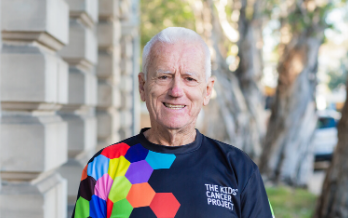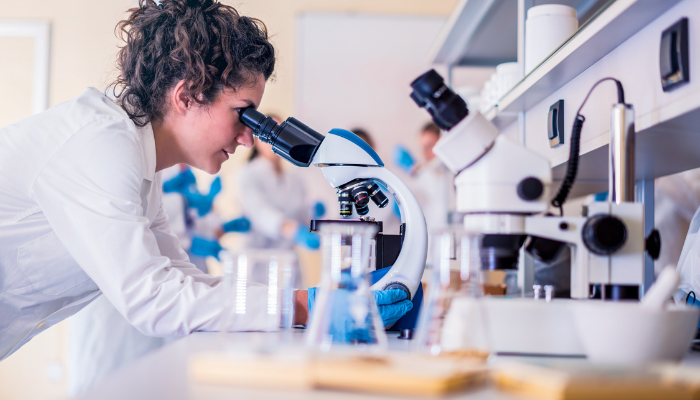Col Reynolds Fellow, Dr Aaminah Khan

Recipient: Dr Aaminah Khan
Institute: Children’s Cancer Institute
Funding: $460,543.20
Dr Aaminah Khan is an early-career researcher at the Children's Cancer Institute in the brain tumour group and a conjoint associate lecturer at the University of New South Wales (UNSW). She earned her doctorate in January 2021, becoming the first to receive a research PhD in Australia with a focus on diffuse intrinsic pontine glioma (DIPG).
Her research revolves around developing novel therapeutic strategies for paediatric brain tumours, leveraging metabolic and epigenetic inhibitors. With a strong background in drug testing using patient-derived brain cancer cell lines and orthotopic animal models, she is devoted to translational research, bridging the gap between the lab and clinical trials.
Motivation
During high school, I was captivated by the wonders of nature and the intricacies of living organisms. As I delved into human biology, I found it fascinating to learn about fundamental processes like breathing and the intricate functions of our bodies.
However, my perspective on biology took a profound turn during my undergraduate studies. Despite our knowledge of human biology, I became acutely aware of the persistent challenges posed by various diseases, particularly cancer. The relentless battle between tumour cells and the body's defences, with tumours being able to change and manipulate the surrounding cells and environment purely for their survival, struck me as an urgent and profound challenge.
Since then, I have dedicated myself to unravelling the mechanisms behind tumour development and developing innovative strategies to overcome treatment resistance. My commitment lies in contributing meaningfully to the field of cancer research, with the goal of offering hope to patients and their families in the face of this formidable disease.
Polyamine Pathways
My project revolves around finding a new way to treat aggressive medulloblastoma, especially the type linked to the MYC gene.* I'm focusing on the polyamine pathway, which is essential for cancer cell growth. To tackle this, I'll be using two drugs together to deplete polyamines in medulloblastoma cells. This will help me understand how it impacts tumour growth and survival. Ultimately, my aim is to develop a treatment that is both highly effective and safe for patients dealing with aggressive medulloblastoma.
Medulloblastoma is a cancerous brain tumour that starts in the back part of the brain called the cerebellum, which controls muscle coordination and balance. It is a fast-growing tumour that can spread to other parts of the brain. While it can affect people of any age, it is most common in young children and represents about 20% of all childhood brain tumours.
Within medulloblastoma, there are different subtypes of this cancer and the most aggressive one has a particularly poor outlook. Sadly, even with aggressive treatments, less than half of the patients survive, and relapse cases are almost always fatal. In my research, I'm focusing on developing a treatment specifically for patients with the most aggressive subtype of medulloblastoma. My goal is to provide hope and improved chances of recovery for these vulnerable patients as they battle this devastating cancer.
(*This gene is a proto-oncogene and encodes a nuclear phosphoprotein that plays a role in cell cycle progression, apoptosis and cellular transformation. – Ed.)
Making a difference through research
My research aims to make a real difference in the lives of kids with cancer, especially those with aggressive medulloblastoma. By focusing on the polyamine pathway, which is crucial for cancer cell growth, we hope to create a powerful treatment combination that can effectively eliminate medulloblastoma cells. The ultimate goal is to develop a safe and highly effective treatment that improves survival rates and minimizes harm to healthy cells, addressing the challenges often faced with current treatments.
This research is incredibly important because right now, aggressive and relapsed cases of medulloblastoma are unfortunately fatal. We urgently need better and more targeted treatments. Our aim is to find a way to stop the cancer cells from growing, without harming the normal cells in the body. If we can achieve this, it could make a huge difference for patients with aggressive medulloblastoma and give hope to their families.
Col Reynolds Fellowship
Being an inaugural recipient of the Col Reynolds Fellowship is an incredible honour and a tremendous opportunity. This prestigious Fellowship will significantly help my career by providing financial support and valuable opportunities for professional growth. With dedicated resources and mentorship, I can advance my research in aggressive paediatric brain cancers, making meaningful strides towards innovative treatment strategies. The Fellowship also offers invaluable networking prospects and collaboration opportunities, driving me towards becoming a leading researcher in paediatric neuro-oncology. I’m determined to use this support to make a difference in the lives of children and families affected by these challenging cancers.
Thank you, donors!
I would like to express my heartfelt gratitude to the donors of The Kids’ Cancer Project for their unwavering support and generosity. Without your contributions, any driving discoveries and breakthroughs made in cancer research would not be possible. Your commitment to funding cancer research is a beacon of hope for countless children and families affected by cancer. Thank you for making a significant difference in the fight against childhood cancer.
I’m incredibly excited about the potential impact of this research on the treatment of aggressive medulloblastoma. With the support of the Fellowship and the passionate team working on this project, I’m confident that we can make significant progress toward improving the lives of young patients and making a meaningful contribution to the field of cancer research.
Find out more about the Col Reynolds Fellowship
With an investment of over $7.6 million, The Kids’ Cancer Project is ensuring that some of the best and brightest young researchers in Australia can further their careers and most importantly, their impact on childhood cancer research.


Read more from past recipients
From a field of outstanding candidates across Australia, The Kids’ Cancer Project has funded the next generation of childhood cancer researchers. Their science-backed research is sure to deliver breakthroughs across a range of areas relating to childhood cancer.

